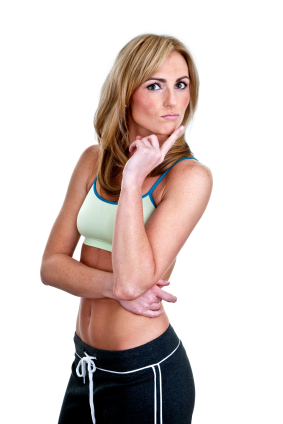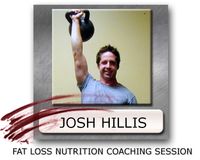First Things First: Why More Food Information Makes No Difference 
It's a KNOWING vs. DOING thing. We are always going to work on KNOWING (more information) and DOING (what we are eating) and we never really go to work on our relationship to food (CONTEXT)
We have a poor context for eating (which is a doing) and what we go to work on is the doing. The problem is that most of what we do - in the long term – is actually a result of our context for doing it.
And the logic and information (the knowing) have no impact on the context, which gives the doing. We keep looking for more information, which doesn't impact the one thing we need to fix: the context.
Feel Bad and Ineffective Food Context:
The context most people eat from is that there is something wrong with their body or their body isn't good enough. And almost no amount of results impacts that context either. And if it does then it just becomes a standard for them to live up to forever, and hate themselves any time they fall below.
Then food becomes this horrible game to dominate their bodies with. And inside of trying to dominate their bodies some food becomes scary and bad, and other food is like moral and good.
Powerful, Health, Effective Food Context:
In reality, the conversation is actually like this: "you're 23% body fat, you look super cute and most of the women in the world want to be you."
And we hammer that.
And then we hammer that food isn't good or bad. It's just effective or not effective at getting leaner.
But getting leaner is inside the context of "you look awesome, but if you want to take it to the next level, we can do that."
And the clients get checked hard when they try to go backwards kn that – I'm like "no really, you look awesome. There's nothing to fix. But if you want to take it to the next level, here is how"
Check Yourself Against Reality:
If you're at or under 20% body fat, you look super rockstar awesome. Guys think you're hot. Girls are watch what you do in the gym because they want to get the same kind of body you've got.
If you are a woman who is at or under 23% body fat, you look awesome. You're super cute, you can probably wear what ever you want. You're kicking ass and should feel really good about it.
If you are under 26% body fat, you're leaner than most. You don't have to take my word for it – spend an hour at Walmart, you'll immediately see that you are winning the fitness game.
If you are under 30% body fat, you're healthy.
If you are in any of those four categories, you need to get that there is nothing "wrong" with you. You can take it to the next level, but it should all come from that context – going to the next level.
On the flip-side, I'm not going to lie to you – if you are over 30% body fat, then there is something wrong, something you need to fix, and you need to get your diet straight until you are under 30%, and I recommend you start today.
What To Do
 Mostly check yourself when you are talking to yourself about your body and food. Unfortunately I'm not there to do it for you.
Mostly check yourself when you are talking to yourself about your body and food. Unfortunately I'm not there to do it for you.
You might not need more information. If anything, you need to be able to cut through the bullshit information, and cut down on the amount of information you are using.
You need to go to work on your context first -> then work on your actions.
If you are going to be real with yourself about the stuff you are doing wrong, you have to be equally real with yourself about the stuff you are doing right.
Not to beat a dead horse, but really we use the above body fat guidelines more to empower women and let them know how good they are already doing. Not as a standard for where they need to get to.
In the world of gratitude exercises, they are all awesome. But the one I like to use with my clients when they get down on themselves is to just ask "What's one thing you like about your body?"
Another one is: "What's one thing you've accomplished in the gym that you're really proud of?"
You can start your next workout or your next food journal entry with that question in your mind.
by Josh Hillis
 P.S. I designed my Josh Hillis Fat Loss Nutrition Coaching Session with one intention: To eliminate the amount of information you have to deal with about nutrition. To simplify, simplify, simplify. Not to add more, but to take away.
P.S. I designed my Josh Hillis Fat Loss Nutrition Coaching Session with one intention: To eliminate the amount of information you have to deal with about nutrition. To simplify, simplify, simplify. Not to add more, but to take away.
If you think that is something that might help, you can get it here for under 8 bucks: https://www.movementlectures.com/MEG0512-04.html
Leave a Reply